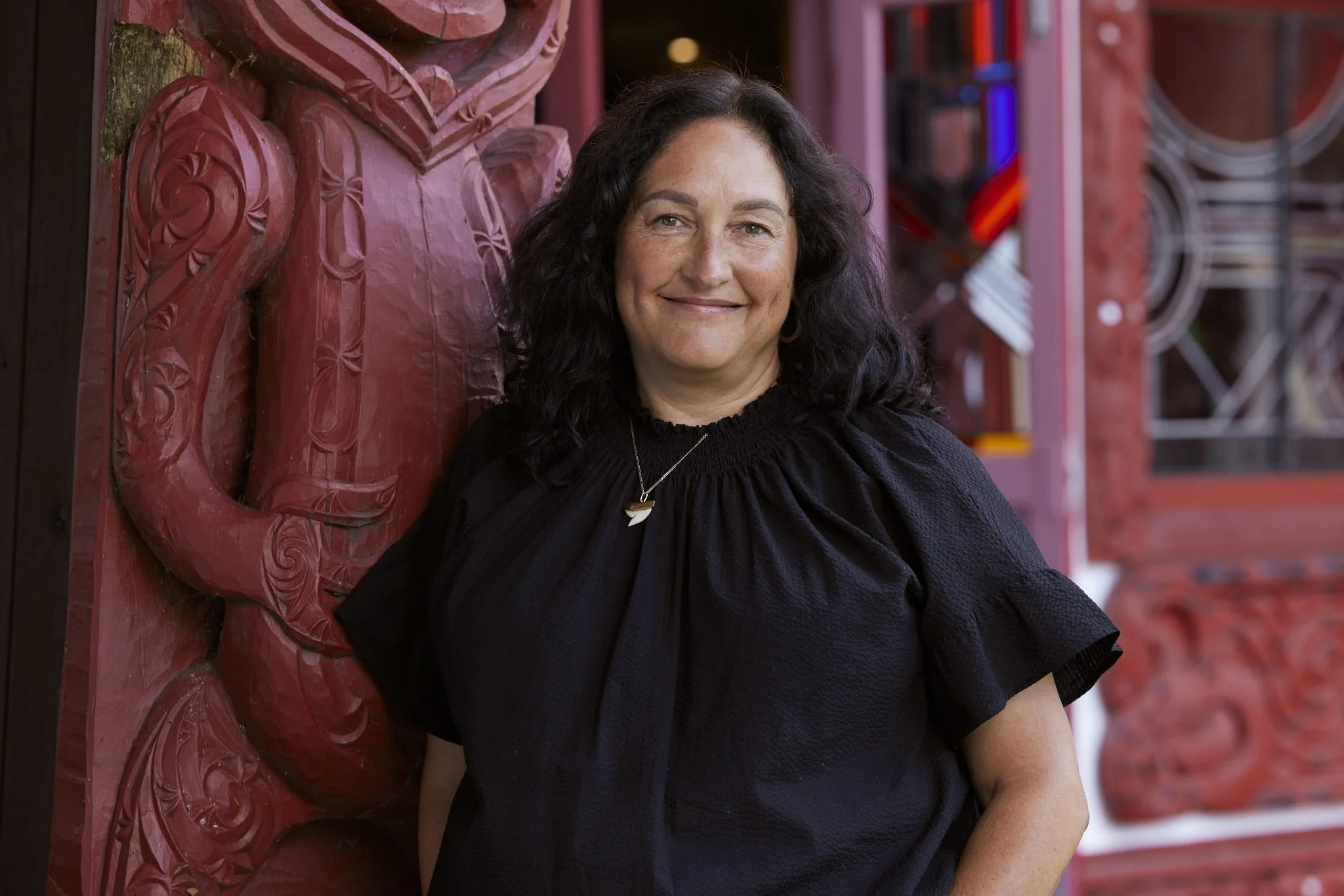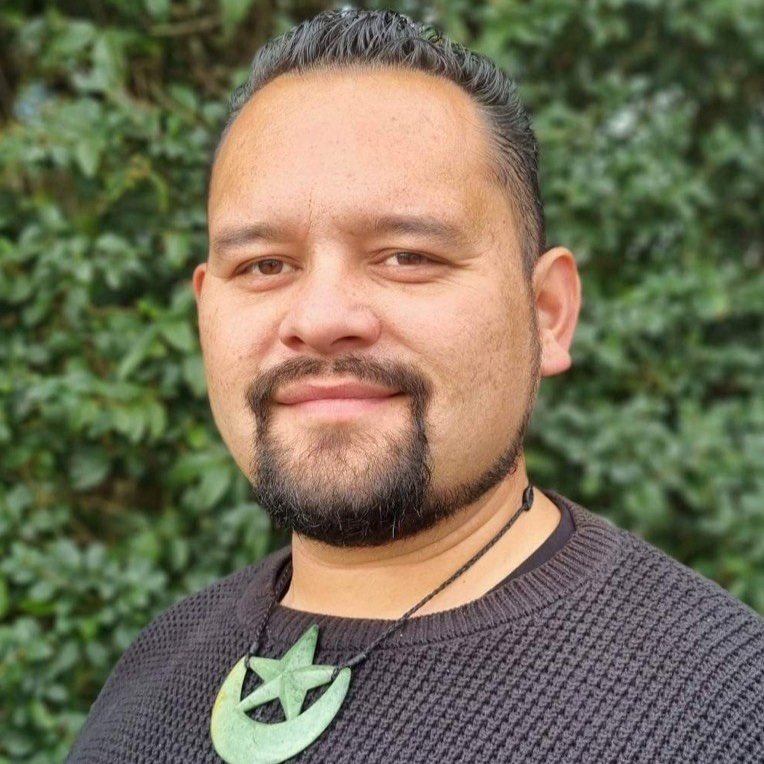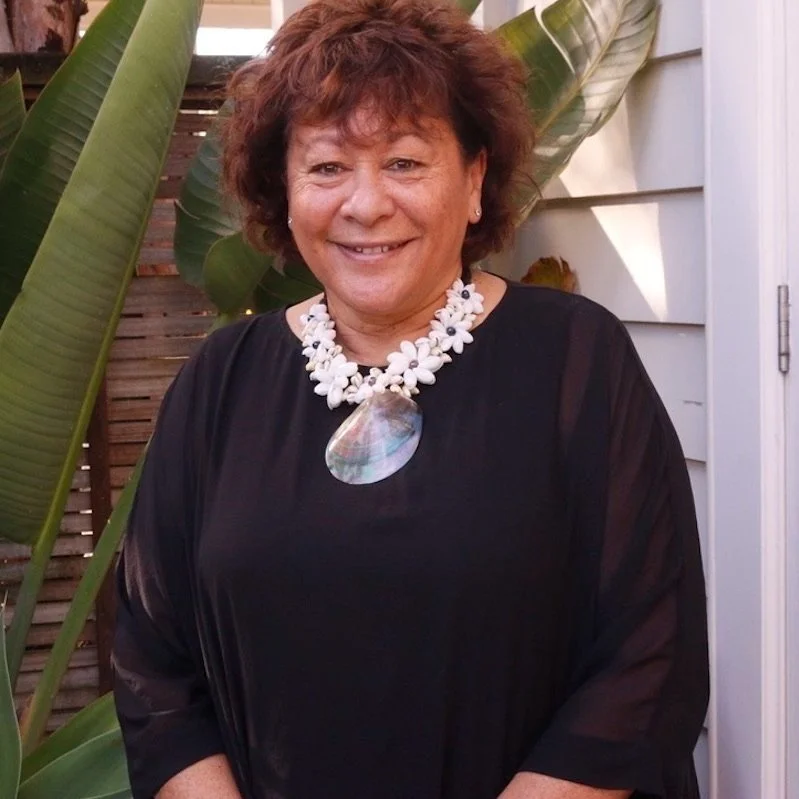Hui ā Tau 2023
SPEAKER PRESENTATIONS
He tapu tēnei mea te mātauranga, manaakitia, poipoia tōna mana.
We are honoured to share with you, the attendees of our Hui ā Tau 2023, our conference speaker presentations - please respect the mahi of these incredible thought leaders. These presentations are not to be shared outside of your kura without permission from the author.
Nga Mihi
Te Arahou - MAC whānau
KAIKŌRERO MATUA
-

Dr Te Kawehau Hoskins
Ngāti Hau, Nga Puhi
Keynote: Rangatiratanga as Indigenising Practice for our Educational Institutions
Abstract: Tino Rangatiratanga speaks to Māori understandings and forms of authority and agency that function for the wellbeing of the collective. Rangatiratanga is multiform, contextual, responsive and relational. It doesn’t look one way or operate at one level. Rangatiratanga is not a thing, a fixed state or point of arrival. Rangatiratanga is a practice, a process, a way of being and thinking. As part of our indigenising efforts across numerous educational and institutional settings, expressions of rangatiratanga are already clearly at work. These are the pockets of Māori agency and innovation. These expressions are evidence of Māori logics and powers at work; of the mobilisation of mātauranga for the collective good. Leading every day, with these indigenous powers, is to indigenise our schools and our universities, for the benefit of all.
-

Professor Melinda Webber
Ngāti Hau, Ngāti Kahu, and Ngāti Whakaue
Keynote: The power of kōrero tuku iho for transforming learning: Whakapapa narratives, the Mana Model and Māori understandings of giftedness.
Abstract: Whakapapa narratives are powerful because they enable teachers and learners to understand the profound value of kōrero tuku iho for better understanding who they are and how they relate to others in the spaces they live and learn. In this presentation I challenge existing concepts of giftedness and use kōrero tuku iho to reframe what giftedness means. Using the Mana Model as a framework, I propose ways we might revise what giftedness is, how giftedness manifests, and what taitamariki need to realise their own giftedness.
-

Te Ringakaha Tia-Ward
Ngati Toki, Nga Puhi
Keynote: Kia Ora Te Huarahi Ako
Abstract: Te Whare Tapu o Te Ngākau Māori is a framework created by a dedicated rōpū of Pou Toki (Architects) Within the framework we speak of Te Huarahi Ako or the Learning Pathway. I will present and contextualize the Huarahi Ako as a living journey which embraces the balance of Mana, Tapu, Mauri, Whatukura, and Mareikura. Follow me on a journey to better understand the essence of enacting your uniqueness in honour of who you were, are, and will be. Begin the journey from the first stages of existence to the achievement and conclusion of your Huarahi Ako. Piki mai, kake mai, ki Te Huarahi Ako.
-

Helen Varney
Tautai o le Moana
Keynote: Strengthening Leadership Capabilities - through Pacific lens’ (Tangata Moana) to improve outcomes for Pacific Learners
Abstract: Through narratives I will unpack four key Pacific values and the impact of these on our Pacific learners - the goal, to deepen your understanding of the Pacific lens to strengthen your leadership capabilities to improve outcomes for Pacific learners.
My presentation centres on 4 key elements
1. The Pacific Lens - what is it and why is it important to develop?
2. Tangata Whenua - Tangata Moana - our connection and our journey for our future
3. Using the Wayfinder Frame as Educational Leaders to Strengthen Leadership capabilities to improve outcomes for Pacific learners
4. Valuing our ways - Tautua, Vā Fealoa'i, Atamai, Mana Reo- Mana Tikanga
TUMUAKI PANEL
Carol Bevis
Bledisloe School, Te Kura o Pereriahau
Wayne Whitney
Hikutaia School
Waveney Parker
Tamahere Model Country School
Sara Whitaker
Waihola School
Pippa Wright
Hamilton East School
WĀNANGA
-
Building Relationships with Marae, Hapū and Iwi
Abstract: At the core of iwi engagement is Whanaungatanga. Whanaungatanga is defined by Tātaiako as “actively engages in respectful working relationships with Māori learners, parents, and whānau, hapū, iwi and the Māori community”. The outcome for our kōrero is that you will have a clearer understanding of the prerequisites that kura should have when “actively engaging” with the Māori community.
DAMON RITAI
Te Ātiawa, Taranaki, Ngāruahine, Ngāti Ruanui, Te Ātiawa ki Te Tauihu o te Waka, Ngāti Rārua Ātiawa, Ngāti Koata, Ngāti Mutunga
-
Māhere i te Huarahi Ako, Te Whare Tapu o te Ngākau Māori Resources
Abstract: An introduction to the resources that have been created specifically for the implementation of Te Whare Tapu o te Ngākau Māori within our schools. We will navigate how the framework fits into a classroom setting and how to plan units and lessons, using our Te Whare Tapu o te Ngākau Māori framework.
PUATAATA TIA-WARD
Ngāti Tūwharetoa ki Kawerau, Ngāti Whakaue, Te Arawa, Te Rarawa
-
Tikanga Based Te Reo Māori: Normalising Te Reo Māori at your Kura
Abstract: Some suggestions, tools and resources to grow Te Reo Māori from the base of normalised, every day practices supported by short deliberate acts of teaching. Using a set of tools and processes to get your kaiako and tamariki to be teaching and learning at the MOE level 4 Te Reo funding level. The focus is more for Englsih Medium settings, but ideas could support other settings.
Kia māori Te Reo Māori.
ANARU MORGAN
Kāi Tūāhuriri, Kāi Tahu, Kāti Mamoe, Waitaha
-
Enacting Māori Concepts and Tikanga in Schools - Pōwhiri, Whakatau
Abstract: 'Shared kōrero me whakaaro around the deliberate actions required to navigate in this important and challenging space. An agreed start point, why, when, what, and who. The critical importance of growing capability in your kura, around understanding kawa, tikanga and normalising these as inherent organic processes within the kura. Ko te mea nui, ko te whakamana o te haukāinga
LINDSAY DUNN
Te Rarawa, Te Aūpouri, Nga Puhi
-
Graduate Profiles: Measuring What We Value
Abstract: What are the values we hold close to us within our kura? How are these values articulated through a Tiriti-Centric Lens?, How do we report and assess our values that our tamariki and rangatahi demonstrate in a meaningful manner?, How well do we teach them and make them come alive in our classrooms and pedagogy?
This breakout session we will look at successful practices in this area and will give you takeaways around building your capacity to assist in the designing of your Graduate Profile for your kura and hapori whānui.
PHIL GORDON
Ngāti Maru, Ngāti Hine
-
Co-governance: Tumuaki Case Study - Developing an Authentic and Genuine Relationship with Iwi and Mana Whenua - Whetū Cormick, Fiona Cavanaugh and Lisa Lowery
Abstract: Facilitating a kōrero with Fiona Cavanaugh (Queenstown Primary) and Lisa Lowery (Cromwell Early Learning Centre) about how they have engaged with iwi and mana whenua, and the mahi involved in developing a partnership in the governance space for their kura.
WHETŪ CORMICK
Tainui, Raukawa ki Wharepūhunga
